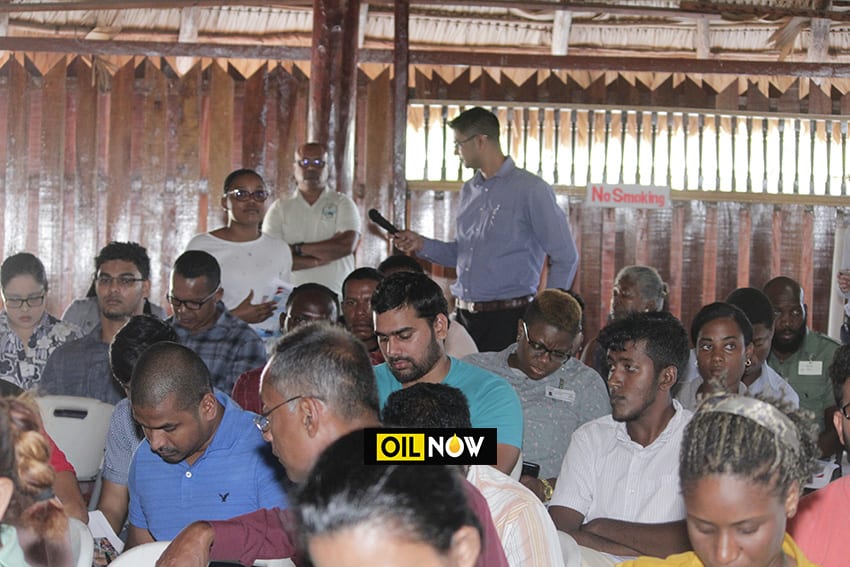The first in a series of public scoping meetings for the Payara Development Project got underway on Tuesday in Guyana’s capital, Georgetown.
Members of the public, civil society as well as representatives from a number of institutions participated in the 2-hour long session which saw presentations being made by officials of the Environmental Protection Agency (EPA) and ExxonMobil Guyana.
The company’s environmental consultants have identified possible effects from the project which are related to physical, biological, socioeconomic, community health, and human environment values. The possible effects, which are expected to be similar to those identified in the Liza Phase 1 and 2 Environmental Impact Assessments (EIA), could be directly or indirectly generated by Payara during development, production operations, and decommissioning. The potential for cumulative impacts exists where impacts from Payara overlap with Liza Phase 1 and 2. As such, ExxonMobil Guyana says a robust cumulative impact assessment will be performed as part of the Payara assessment of environmental impacts.
Michael Persaud, Safety, Security, Health and Environment Manager at ExxonMobil told the gathering that approximately 113 unique comments were submitted at scoping meetings for the Liza Phase 1 and 2 Development projects. Thirty-one percent of these comments, he said, “were related to the impacts to environmental resources.”
The remaining questions focused on unplanned events such as spills and releases, and the Environmental Impact Assessment process.
Some of the views shared at the Payara meeting were similar in nature and also included concerns related to access by communities, particularly those in remote locations along Guyana’s coast, to information about the offshore development projects.
EPA officials, responding to the concerns raised, said the agency is examining options to effectively address some of the challenges and will be looking to put systems in place to ensure information, which is available on the agency’s website, reaches more people.
Candacie Thompson, Senior Environmental Officer at the EPA, said the public has a period of 28 days to submit their concerns to the environmental body for consideration and inclusion in the scope and terms that will be developed for the EIA.
ExxonMobil Guyana Operations Manager, Mike Ryan, told those gathered that first oil from the Payara Development project is four years away, “so we’ve got time for your input and we really appreciate your presence today to make sure that we hear your input and include it in the terms of reference for the Environmental Impact Assessment.”
The Payara Development will see approximately 35-45 wells being drilled from 10 subsea drill centres, consisting of a combination of producers and injectors to support oil production at a rate of approximately 180,000 to 220,000 barrels of oil per day.



